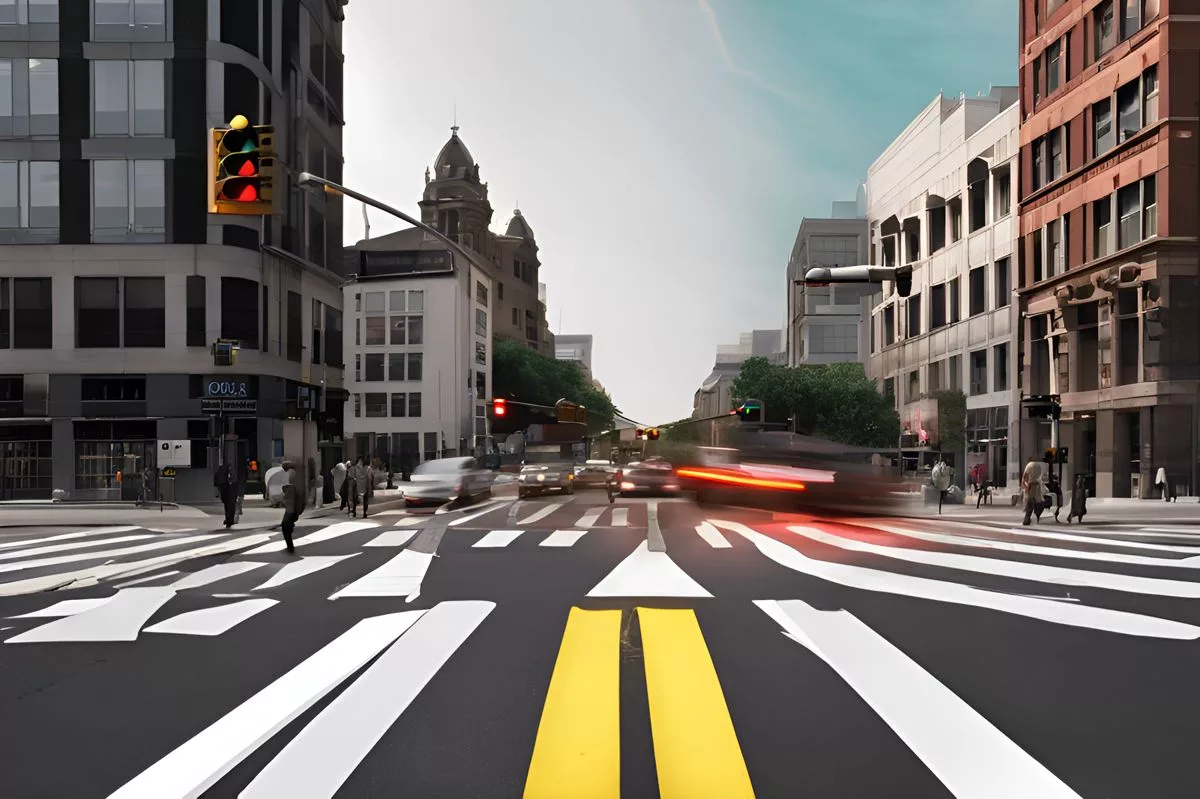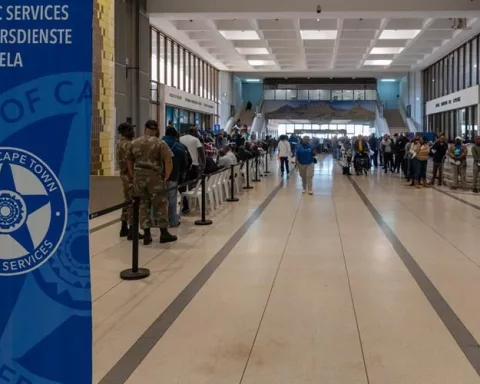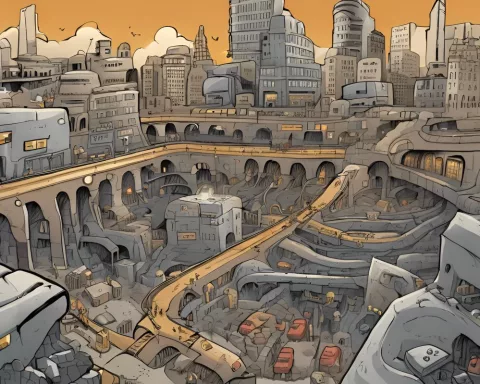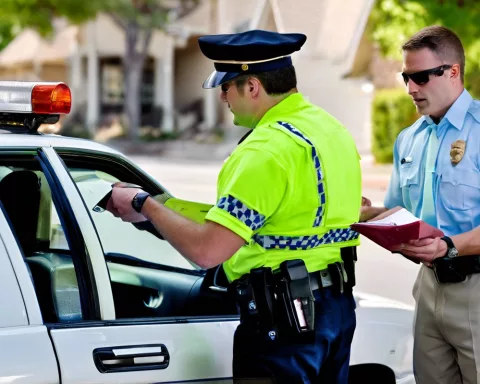In Fourways, Johannesburg, self-proclaimed ‘informal traffic controllers’ have taken on the role of managing traffic at major crossroads. While some appreciate their efforts, others accuse them of exploiting malfunctioning traffic signals for personal gain. The Johannesburg Metropolitan Police Department urges motorists to treat junctions as mandatory halt points and not encourage these informal traffic controllers. The story offers insight into the complex dynamics of urban life.
The Enigma of Fourways’ Unofficial Traffic Managers
In the suburb of Fourways, self-proclaimed ‘informal traffic controllers’ have taken on the responsibility of administering traffic at significant crossroads. However, their actions have been met with both appreciation and doubt from the public, with accusations of exploiting malfunctioning traffic signals for personal gain. Johannesburg Metropolitan Police Department urges motorists to treat junctions as mandatory halt points and to refrain from commending these informal traffic controllers.
The Enigma of Fourways’ Unofficial Traffic Managers
In the vivacious suburb of Fourways, an extraordinary occurrence has incited both concern and conversation among the locals regarding its character and effects. These self-proclaimed ‘informal traffic controllers’ have self-assigned the responsibility of administering traffic at significant crossroads, generating a blend of both appreciation and doubt within the populace.
As part of their daily activities, countless residents traverse through the complex network of Fourways’ streets, only to encounter these self-proclaimed traffic managers at intersections. They present an intriguing spectacle, commanding the constant flood of vehicles with a nimbleness that suggests their deep understanding of the role.
The Faces of the Story
Two such individuals, identified as Lebogang and Adam, have become central characters in this discourse, earning recognition from both gratified drivers and doubtful spectators. Regularly posted at the busy junction of Witkoppen and Main Road, they insist their goal is not to create disorder but rather to mitigate it.
In their conversation with the Fourways Review, they expressed, “Our aim is to assist people. We focus on traffic signals that have malfunctioned for extensive periods, and especially where there is an absence of police or official traffic controllers to streamline the flow of traffic.”
However, their self-proclaimed altruistic intentions have been questioned by several locals, including Ward 93 Councillor Vino Reddy. Notably skeptical, Reddy and others have accused the pair of deliberately sabotaging traffic signals to exploit the resulting confusion for their personal gain. Accusations of forceful demands for compensation, primarily from local taxi driver Mangwane Hlongwane, have further intensified the dispute.
Professional Insight and Public Perception
Superintendent Xolano Fihla of the Johannesburg Metropolitan Police Department contributed a professional standpoint to the discussion. He urged motorists to refrain from inadvertently encouraging these informal traffic controllers. He indicated that commending their efforts might lead to potential disruptiveness and harm their safety. His suggestion was to treat junctions as mandatory halt points in the absence of official traffic managers.
Adding credence to Fihla’s advice, Reddy echoed similar sentiments and implored residents to report malfunctioning traffic signals and resist the temptation to tip these self-appointed traffic managers. He stated, “It is unacceptable that these individuals are sabotaging our traffic signals for their selfish motives. They are not providing a service, they are creating a hazard.”
Reflection on Urban Dynamics
The existence and deeds of these self-appointed traffic controllers have undoubtedly added a spicy twist to Fourways’ narrative. Depending on perspective, they are either seen as ingenious citizens stepping in where official services are lacking, or as opportunists capitalizing on a loophole for personal benefit. Their tale offers an insightful look at the city’s current situation.
With narratives ranging from profound gratitude to vehement criticism, their presence has evoked a dichotomous reaction from the community. This story unfolds at the crossroads of need and initiative, structure and disorder, scepticism and trust. Regardless of the stance taken, one fact remains uncontested: the saga of Fourways’ unofficial traffic controllers bears testament to the intricate dynamics of city life.
1. What are ‘informal traffic controllers’ in Fourways?
‘Informal traffic controllers’ in Fourways are self-proclaimed individuals who have taken on the responsibility of directing traffic at major crossroads in the absence of official traffic controllers.
2. What is the public perception of ‘informal traffic controllers’ in Fourways?
The public perception of ‘informal traffic controllers’ in Fourways is divided. While some appreciate their efforts, others accuse them of exploiting malfunctioning traffic signals for personal gain.
3. Who are Lebogang and Adam, and what is their role in the discourse on ‘informal traffic controllers’?
Lebogang and Adam are two self-proclaimed ‘informal traffic controllers’ who have become central characters in the discourse on the topic. They have been recognized by both gratified drivers and doubtful spectators and regularly appear at the busy junction of Witkoppen and Main Road.
4. What is the professional standpoint of the Johannesburg Metropolitan Police Department on ‘informal traffic controllers’?
The Johannesburg Metropolitan Police Department urges motorists to treat junctions as mandatory halt points in the absence of official traffic controllers and to refrain from commending the efforts of ‘informal traffic controllers’. Commending their efforts might lead to potential disruptiveness and harm their safety.
5. What is the opinion of Ward 93 Councillor Vino Reddy on ‘informal traffic controllers’?
Ward 93 Councillor Vino Reddy is notably skeptical of the self-proclaimed ‘informal traffic controllers’. He and others have accused them of deliberately sabotaging traffic signals to exploit the resulting confusion for their personal gain. Reddy implores residents to report malfunctioning traffic signals and resist the temptation to tip these self-appointed traffic managers.
6. What does the saga of Fourways’ unofficial traffic controllers reflect?
The saga of Fourways’ unofficial traffic controllers reflects the intricate dynamics of urban life. Depending on perspective, they are either seen as ingenious citizens stepping in where official services are lacking, or as opportunists capitalizing on a loophole for personal benefit.












